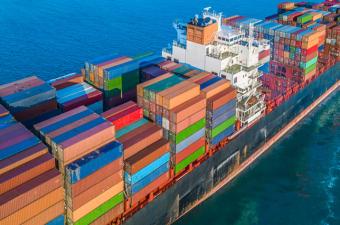
OVERVIEW
In this case the English High Court found that despite the negligence of the Master in requiring the unnecessary strapping of cargo, Charterers could not claim against Owners for losses flowing from that negligence.The case highlights the potentially wide reach of the exceptions available to shipowners in cases where the Hague/Hague-Visby Rules are incorporated into charterparties.
Background
The dispute arose out of the shipment of a cargo of soyabeans on the MV PRIVOCEAN from New Orleans to China via the Panama Canal in November 2014. Owners’ claim was for a balance of about US$400,000 of hire. The master had required that the cargo in hold number 2 be strapped in order to ensure the stability of the ship in accordance with SOLAS (The International Convention for the Safety of Life at Sea 1974). This entailed the Charterers incurring additional expenditure of some US$ 410,000 which they counterclaimed from Owners by way of damages on the grounds that the strapping was unnecessary and that the master’s insistence upon it was negligent.
Charterers contended that their counterclaim should succeed on two principal grounds:
(1) That the wording of clause 2 of the NYPE 1946 form meant that an inference could be made that Owners should be liable for the cost of unnecessary strapping.
(2) That the Master’s negligence in ordering the strapping of cargo in hold number 2 meant that the cost of such strapping should be for Owners’ account. Charterers argued that the stability of the vessel could have been ensured through other means, such as ballasting or distributing the cargo differently.
The Tribunal’s Decision
The Tribunal found that the Master had indeed been negligent and that adequate stability could have been achieved without the need for strapping. The negligence was found to have been a breach of clauses 8 and 83.
However, the Tribunal found that the negligence of the Master was in the management of the ship. Accordingly Owners were not liable by reason of section 4(2) of US COGSA (as incorporated in the relevant charterparty) which is in the same terms as Article IV Rule 2(a) of the Hague/ Hague-Visby Rules. Further, the Tribunal decided that clause 2 did not come to Charterers’ aid.
The High Court Claim
Permission was granted to Charterers to appeal the decision on two questions of law, namely:
(1) Is the effect of clause 2 of NYPE form 1946 edition that unnecessary and non-requisite fittings insisted upon by the Master are for the account of Owners?
(2) Where the primary purpose of a loading and stowage operation is to put the cargo on board so that it can be carried to the discharge port, and where the Master negligently causes the cargo to be loaded and stowed in such a way that money and time are wasted by fitting and removing unnecessary cargo fittings, is the negligence of the Master in the management of the ship (within the meaning of section 4(2) of COGSA and Article 4, rule 2 of the Hague/Hague-Visby Rules), or the management of the cargo?
Cockerill J upheld the Tribunal’s decision on both questions. The Judge concluded that in relation to the first question of law, clause 8, not clause 2 governed the parties’ obligations in respect of the loading and stowing of cargo. The effect of clause 8 is “well known”, it is a broad transfer of responsibility of such operations to Charterers. Without more any qualification for necessity as suggested by Charterers could not properly be read into clause 2.
As to the second question of law, the Judge again started from the position that as per clause 8 of the charterparty the responsibility for loading had been transferred to Charterers. The Master’s role in creating the stowage plan was, the Judge held, “supervisory and not primarily related to the care of the cargo”. The Master’s actions in this regard were considered by the Judge as “pertaining to the stability of the vessel” and the Judge noted that the Master took the same view. Thus the primary nature and object of the acts which caused the loss were related to ship management in the sense of the stability of the vessel and not the care of the cargo. This was so despite the relevant acts affecting the cargo. Thus the section 4(2) exception applied and excluded Owners from any liability.
Implications of the decision
This was an unusual case in that the counterclaim brought by Charterers in relation to which Owners sought to rely upon Article 4 rule 2 was not for damages for lost or damaged cargo, but rather for wasted costs. However, it was not suggested that the defence is limited to cases of physical loss or damage (see also in this regard The Aquacharm [1982] 1 Lloyd’s Rep. 7 at p. 10 per Lord Denning MR).
As with many such cases, the result will be very fact specific. A relevant factor in this case was held by the Judge to be the timing of the acts complained of – the negligent act of refusing to contemplate a particular stowage plan predated any act of loading. However, in a case such as this, it was not just the nature of the relevant act but the object of the act which determined the claim. At first blush the strapping of the cargo would appear to be an act concerning the care of the cargo, but once the precise acts complained of and which caused the loss were identified and the object of the acts examined, it followed that the negligent acts related to the management of the vessel. So the case shows that just because an act affects cargo, does not mean that it cannot be considered as being an act “in the management of the vessel”.


